RHI inquiry: DUP advisers 'stopped scheme decisions'
- Published
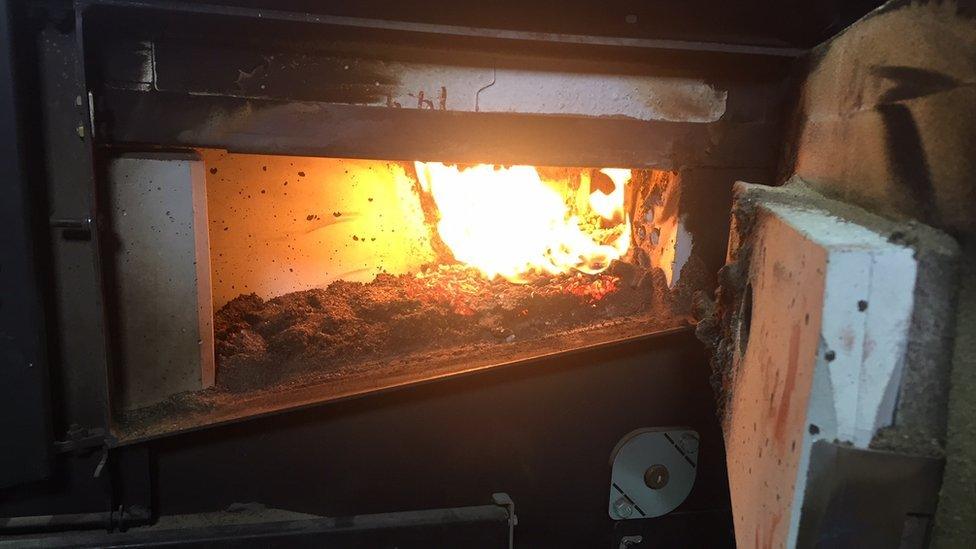
There are about 2,000 biomass boilers accredited to the RHI scheme
DUP special advisers worked to stop decisions being taken about a botched energy scheme as it came under huge budget pressure, a public inquiry has heard.
The third day of the Renewable Heat Incentive Inquiry was told the claims would be made as part of evidence from ex-DUP minister Jonathan Bell.
He took over as minister of enterprise, trade and investment in 2015.
RHI encouraged firms to switch from fossil fuels to biomass or woodchip.
But a lack of cost controls meant it could overspend by £700m over 20 years.
Counsel to the inquiry David Scoffield QC said Mr Bell's evidence would claim that his own special adviser Timothy Cairns had taken direction from other figures within the DUP, including other special advisers (spads) and party officers.
Mr Bell will claim that Mr Cairns had considerable control over the agenda for "issues meetings", at which ministerial decisions were to be taken at the Department for Enterprise, Trade and Investment (Deti).
'Heating empty chicken houses'
He has told the inquiry that when his department's top civil servant Dr Andrew McCormick tried to raise RHI in the presence of Mr Cairns in July 2015, the adviser said he did not want it to be on the agenda.
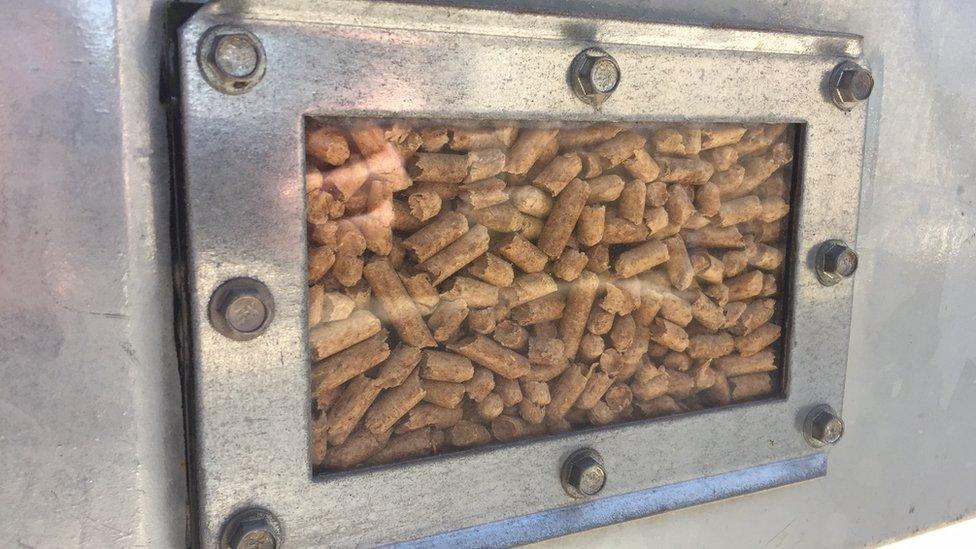
Many of the boilers on the RHI scheme create heat by burning wood pellets
Mr Scoffield told the inquiry that Mr Bell's evidence would assert that Mr Cairns referred to other spads who did not want the RHI scheme to be on the agenda.
Those included Andrew Crawford, the adviser to then finance minister Arlene Foster; Timothy Johnston, who advised then first minister Peter Robinson; and John Robinson, the DUP's communications director.
Mr Scoffield said that Mr Bell would contend that there had been "a concerted attempt to delay action being taken on the RHI scheme" by keeping it off his agenda.
He added that Mr Bell was not making the case that Mr Cairns was working on his own behalf, but rather under the influence of Mr Crawford and Mr Johnston.
The inquiry was also told that Mr Crawford was able to predict the spike in applications that burst the budget and forced the closure of the scheme.
As Mrs Foster's adviser, he was consulted about the introduction of cost controls in the summer of 2015.
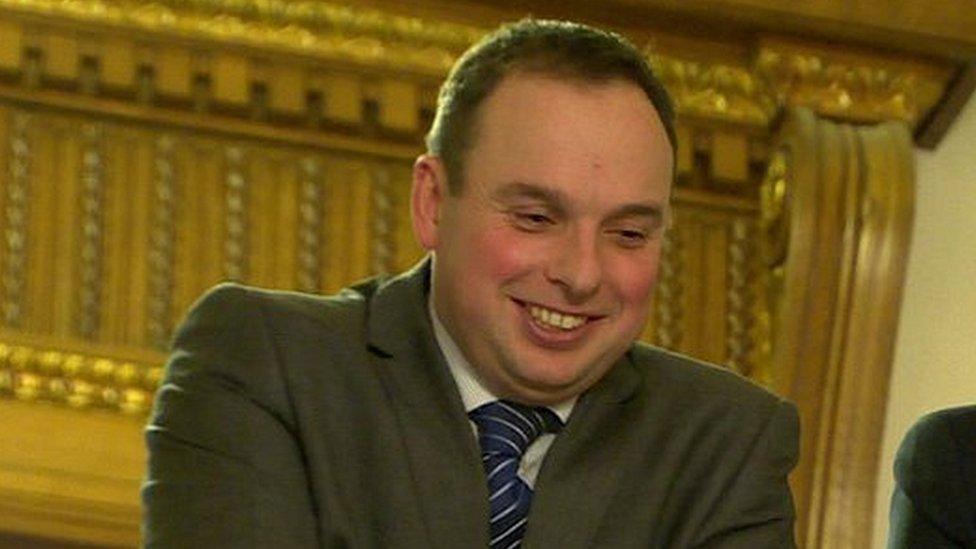
Dr Andrew Crawford was an adviser to Arlene Foster when the RHI scheme was created
In emails produced to the inquiry, Mr Crawford wrote that the "word on the street" was that changes in tariffs were being considered for the autumn of that year.
"You are going to get a massive spike in applications before that date," he wrote in July to his fellow DUP spad Timothy Cairns, who had sought his advice about the changes.
Mr Crawford also suggested that Moy Park poultry producers were being incentivised by the scheme to heat their chicken houses when they were empty.
Mr Scoffield said it was "significant" that Mr Crawford seemed to be aware of the incentive to use heat simply to make money.
Mr Crawford was asked by the inquiry when he first became aware that the subsidy was higher than the cost of fuel and there was an incentive to burn fuel simply to earn a profit.
He has said he cannot recall, but it was "apparent" to him in July 2015 that a large number of biomass boilers were in the process of being installed.
He said he wanted the cost controls brought in October, a month before they were finally introduced.
'Voice of warning'
Earlier on Thursday, the inquiry heard how a businesswoman who flagged up big problems in the scheme was a "persistent voice of warning" in the ear of the department responsible for running it.
Mr Scoffield outlined how Janette O'Hagan's concerns were treated as a "significant missed opportunity".
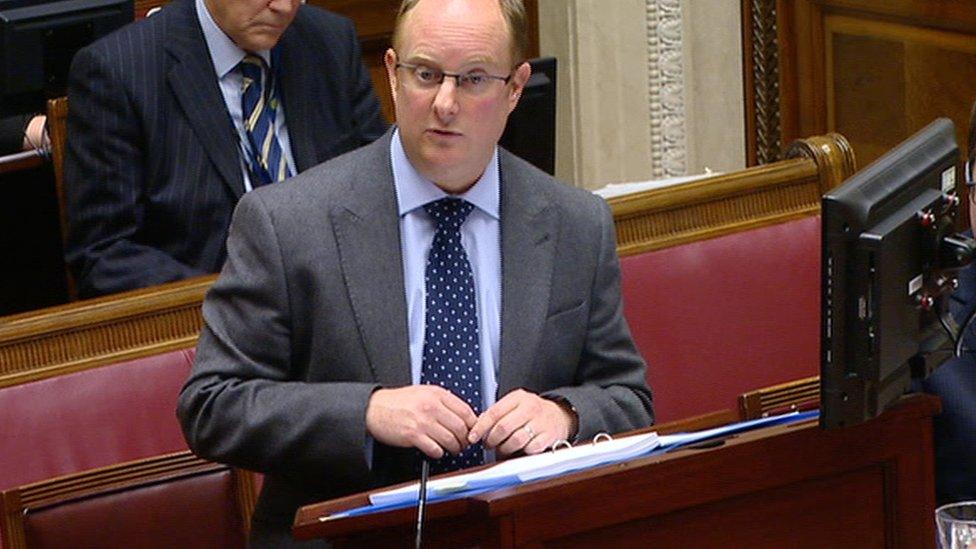
David Scoffield QC outlined details of what is to come in the inquiry in his opening statement
She had a business promoting energy efficiency and was concerned that the RHI scheme encouraged its beneficiaries to waste heat in order to earn lucrative subsidy payments.
She began emailing her concerns in August 2013 and continued doing so for two years.
'Ignored'
Ms O'Hagan contacted the then Deti minister Arlene Foster and a number of civil servants to raise issues about how the scheme was run.
She did eventually have a meeting with officials to discuss her observations, but felt she had been ignored and was left feeling "thoroughly fed up" by the department's response.
Mr Scoffield said that had her warnings been listened to the vast overspend may have been avoided.
In May 2014, Ms O'Hagan offered to provide proof that the scheme was being abused.
Her email was ignored, but the content of it was later included in a handover note prepared for new civil servants coming in to take over the running of the scheme.
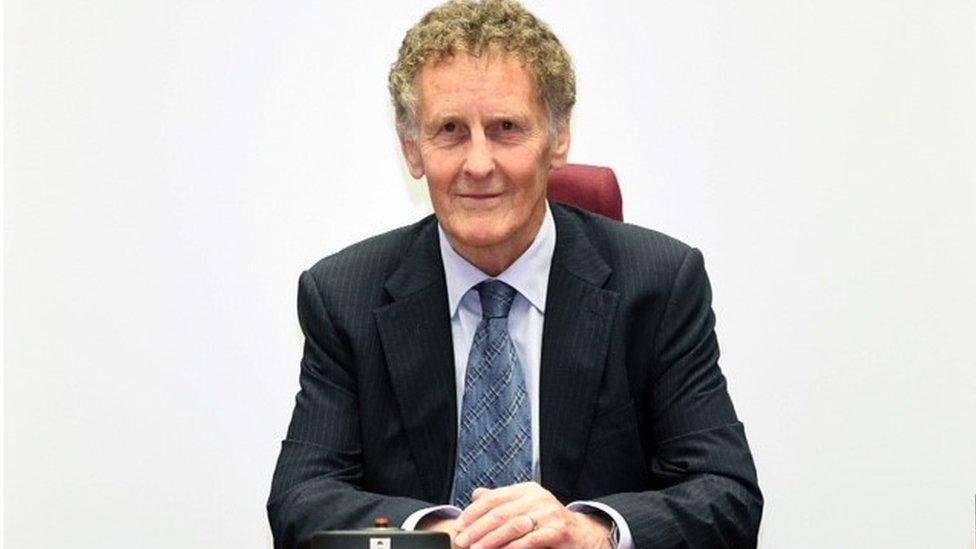
Sir Patrick Coghlin is chairing the RHI Inquiry, which is expected to last for several months
Dr McCormick said that handover note was only brought to his attention in September 2016, and when he saw it he realised that Ms O'Hagan's email had "very serious implications".
He said it confirmed for the first time that there had been "a direct challenge issued to the energy division team in relation to the most fundamental flaw in the RHI scheme, and the root cause of the main difficulties".
Ms O'Hagan emailed Arlene Foster several times, both at her department and constituency email address - the first two emails were non-specific about the threat posed by RHI.
The third, in September 2013, made a "much more direct point" about the initiative, raising allegations of abuse.
It was sent to Mrs Foster's constituency office, but no record has been found it was then sent from her private office to Deti for a follow-up.
The first time the department became aware of it was after the public inquiry had begun.
Mr Scoffield said the fact that the September 2013 email did not appear to have been passed on might have "limited consequence", in that, one which had been sent the previous month had been passed on properly and had led to a meeting with officials.
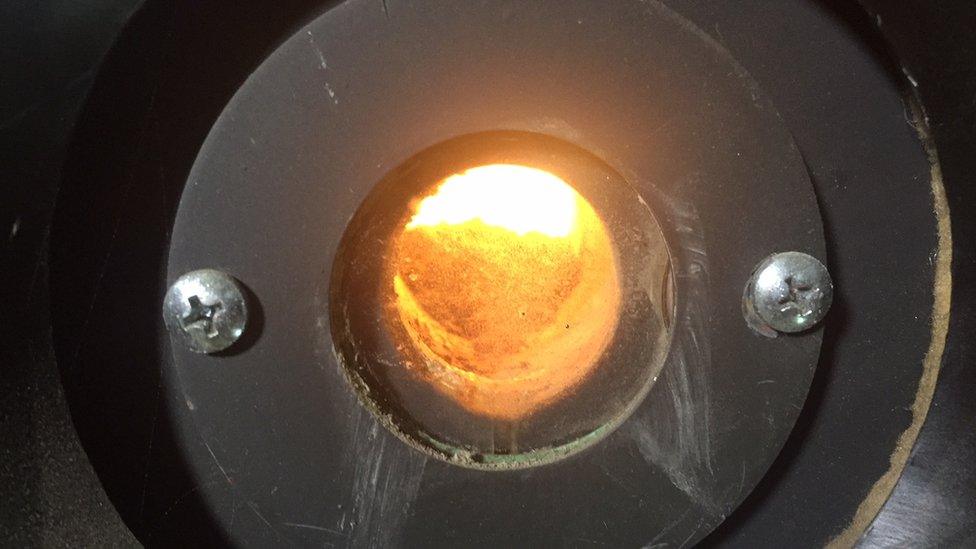
Short-term measures to control the cost of the RHI scheme are in now place
At that meeting on 8 October 2013, Ms O'Hagan felt her concerns had not been taken seriously.
She had raised the prospect of businesses running heating systems all day with the windows open, but said the officials did not believe that people would do that.
She was told in later emails that the issues she had raised were "on the radar" as officials considered a 2014 review of the scheme.
She said she was disappointed to learn that cost controls had not been brought in.
Mr Scoffield said it is difficult to see Deti's response to Ms O'Hagan's concerns as anything other than "a highly significant missed opportunity" to examine the scheme and identify the errors.
- Published9 November 2017

- Published7 November 2017
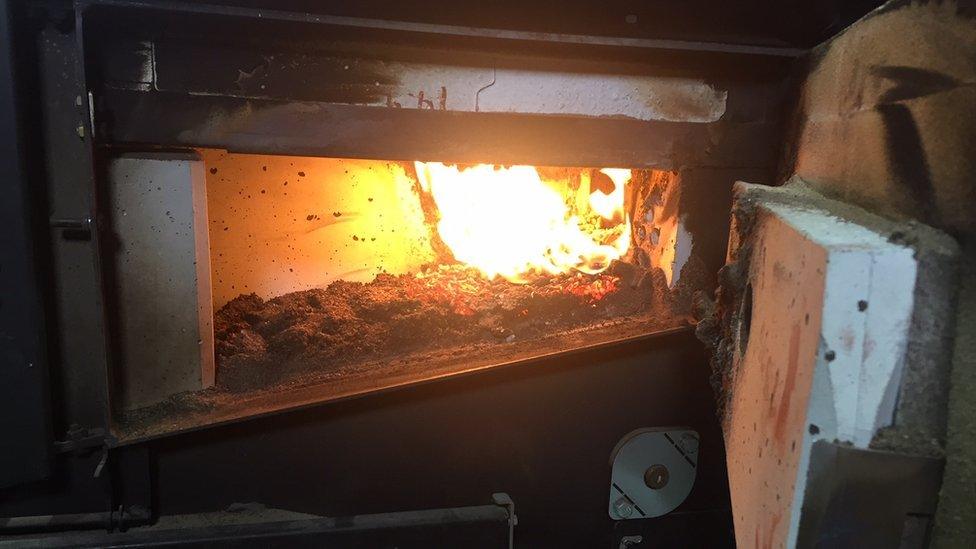
- Published7 November 2017

- Published23 October 2019
